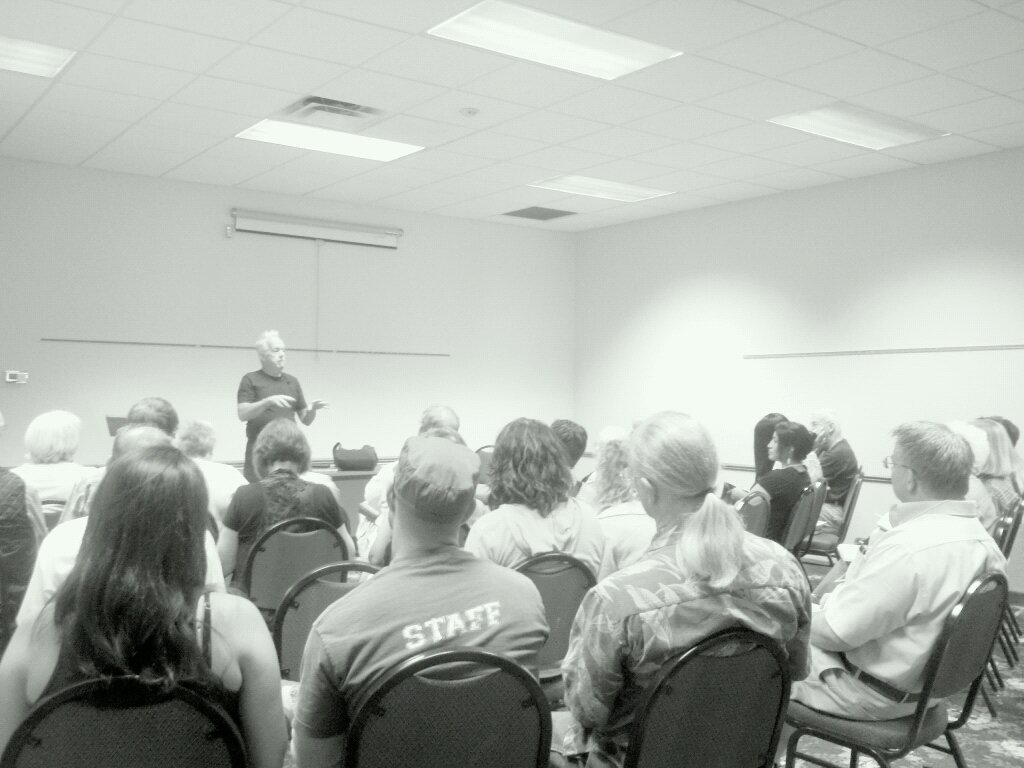(Our back yard)
I am interested in connections between Pauline thinking and Cognitive Behavioral Therapy. The apostle Paul writes:
"Finally, brothers and sisters,
whatever is true,
whatever is noble,
whatever is right,
whatever is pure,
whatever is lovely,
whatever is admirable
-- if anything is excellent or praiseworthy
-- think about such things
and the God of peace will be with you."
Philippians 4:8
Examples of Pauline thinking include the "declarations" given by Steve Backlund of Bethel Redding Church, and the identity statements of Neil Anderson. Both are about thinking on identity truths, using verbal repetition.
For example, I am God's child and deeply loved by him. As followers of Jesus, that's true, right? So, why not meditate on that truth so that, as Henri Nouwen says, it might descend from your mind into your heart.
In The Coddling of the American Mind, Greg Lukianoff and Jonathan Haidt advocate Cognitive Behavioral Therapy (CBT) as a cure for maladies such as anxiety disorder, depression, OCD, anger, marital conflict, and stress-related disorders. CBT is uncannily similar to Paul's instructions in Philippians 4:8.
CBT treats cognitive distortions, such as "I'm no good," "My world is bleak," and "My future is hopeless." (Lukianoff and Haidt, 36) CBT breaks disempowering feedback cycles between negative beliefs and negative emotions.
They write:
"With repetition, over a period of weeks or months, people can change their schemas and create different, more helpful habitual beliefs (such as "I can handle most challenges" or "I have friends I can trust.")" (Ib., 37) This is remarkably like Backlund's identity declarations. (See also James K. A. Smith's excellent You Are What You Love: The Spiritual Power of Habit.)
Cognitive distortions empower negative emotions. Put in a Pauline way, repetitive thinking on "whatever is false" distorts our emotions. Lukionoff and Haidt are concerned over our universities and the cognitive distortions they produce in our students. While to my knowledge neither Lukionoff nor Haidt are Christians, they refer to CBT as the "thinking cure." I see the Pauline "thinking cure" of Philippians 4:8 as combating these distortions in ways that are similar to CBT.
They list nine such distortions. Here they are, direct from the book, with my comments on logical fallacies added. (38).
NINE COMMON COGNITIVE DISORDERS PEOPLE LEARN TO RECOGNIZE IN CBT
EMOTIONAL REASONING
Letting your feelings guide your interpretation of reality.
"I feel depressed; therefore, my marriage is not working out."
(In logic this is an example of the fallacy of false cause.)
CATASTROPHIZING
Focusing on the worst possible outcome
and seeing it as most likely.
"It would be terrible if I failed."
(This is similar to the slippery slope fallacy in logic.)
OVERGENERALIZING
Perceiving a global pattern of negatives
on the basis of a single incident.
"This generally happens to me.
I seem to fail at a lot of things."
(In logic this is called the fallacy of hasty generalization.)
DICHOTOMOUS THINKING
Also known as "black and white thinking,"
"all or nothing thinking," and "binary thinking."
Viewing events or people in all-or-nothing terms.
"I get rejected by everyone," or
"It was a complete waste of time."
(In logic this is called the fallacy of false dichotomy. But note: logic is the reaqlm of binary thinking. Which is good, and true, even beautiful as related to simplicity.)
MIND READING
Assuming that you know what people think without having sufficient evidence of their thoughts.
"He thinks I'm a loser."
LABELING
Assigning global negative traits to yourself or others (often in the service of dichotomous thinking).
"I'm undesirable."
"he's a rotten person."
NEGATIVE FILTERING
You focus almost exclusively on the negatives and seldom notice the positives.
"Look at all of the people who don't like me."
DISCOUNTING POSITIVES
Claiming that the positive things you or others do are trivial, so that you can maintain a negative judgment.
"That's what wives are supposed to do - so it doesn't count when she's nice to me."
"Those successes were easy, so they don't matter."
BLAMING
Focusing on the other person as the source
of your negative feelings;
you refuse to take responsibility
for changing yourself.
"She's to blame for the way I feel now."
"My parents caused all my problems."
Lukionoff and Haidt claim that universities encourage students to use the distortions listed above. (40)
GOD’S COGNITIVE BEHAVIORAL THERAPY
Meditation on truth transforms the human heart. It breaks lies, and heals.
I have discovered that, when I carry my 3X5 cards with me, on which I have written what God thinks of me, the truths of God slowly descend from my mind into my heart. They become my heart.
This is a Henri Nouwen idea, a James K. A. Smith idea, a Dallas Willard idea, and a Pauline idea. Philippians 4:8-9 reads:
Finally, brothers and sisters, whatever is true, whatever is noble, whatever is right, whatever is pure, whatever is lovely, whatever is admirable—if anything is excellent or praiseworthy—think about such things. Whatever you have learned or received or heard from me, or seen in me—put it into practice. And the God of peace will be with you.
I view this as a form of cognitive behavioral therapy, supernaturally empowered by the Holy Spirit. Perhaps, mind-of-Christ Behavioral Therapy.
"Cognitive" - how we think; what we set our mind on.
"Behavioral" - what we do; how we live and experience life.
"Therapy" - from the Greek word therapeuo, which means "to heal."
What is Cognitive Behavioral Therapy?
"Cognitive behavioral therapy (CBT) is a common type of talk therapy (psychotherapy). You work with a mental health counselor (psychotherapist or therapist) in a structured way, attending a limited number of sessions. CBT helps you become aware of inaccurate or negative thinking so you can view challenging situations more clearly and respond to them in a more effective way.
CBT can be a helpful tool in treating mental health disorders, such as depression, post-traumatic stress disorder (PTSD) or an eating disorder. But not everyone who benefits from CBT has a mental health condition. It can be an effective tool to help anyone learn how to better manage stressful life situations." (From the Mayo Clinic.)
When we add the Holy Spirit to this, we have an effective therapy that transforms and heals. I'm calling this God's Cognitive Behavioral Therapy. This involves two biblical concepts:
1) Intentionally think on (meditate on) whatever is true, right, noble, lovely, and admirable.
2) Take captive whatever is false, wrong, ignoble, unlovely, and unworthy of praise.
Paul writes:
We do not wage war as the world does. The weapons we fight with are not the weapons of the world. On the contrary, they have divine power to demolish strongholds. We demolish arguments and every pretension that sets itself up against the knowledge of God, and we take captive every thought to make it obedient to Christ.
Defeat falsehoods by intentionally meditating on God's truths. The Holy Spirit champions and empowers this. We are promised that "the God of peace" will be with us. This means an invasion of peace into our hearts. God's truths, which you mentally acknowledge, become your heart, your way of being, your way of seeing things, and even seeing yourself. Our thoughts become "obedient to Christ." All this is healing, transforming, and liberating.












